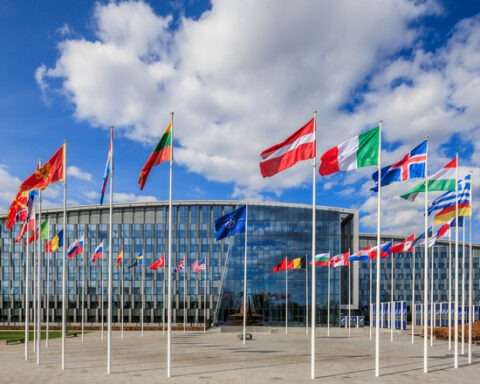The aid measures consists of a €400 million (approximately PLN 1.8 billion) subsidised loan and a capital injection of around €250 million (approximately PLN 1.1 billion). The measures were approved under the State aid Temporary Framework.
Executive Vice-President Margrethe Vestager, in charge of competition policy, said: “LOT plays a key role for the connectivity and economy of Poland. With these measures, Poland will contribute approximately €650 million to help the airline weather the current coronavirus crisis. The decision ensures that the State is sufficiently remunerated for the risk taxpayers assume, and that the support comes with strings attached, including a dividend ban as well as further measures to limit distortions of competition. We continue working in close contact and cooperation with Member States, to find workable solutions to mitigate the economic impact of the coronavirus outbreak, in line with EU rules.”
The Polish measures
LOT is a major network airline in Poland and Central Europe and it is the only carrier operating a hub in Poland, at Warsaw Chopin airport.
In the second quarter of 2020, LOT suffered substantial losses due to the coronavirus outbreak and the travel restrictions that Poland and other countries had to impose to limit the spread of the coronavirus. The significant drop in travel demand and the restrictive measures continue deteriorating the financial situation of the airline. As a result, LOT is currently facing a risk of default and insolvency. The aid measures intend to restore LOT’s equity and liquidity position, in order to ensure the continuation of the air transport services in Poland that LOT provides.
Poland notified to the Commission, under the Temporary Framework, two measures in support of LOT:
- a €400 million (approximately PLN 1.8 billion) subsidised loan; and
- a capital injection of €250 million (approximately PLN 1.1 billion), through the subscription of newly issued shares taken up by Poland.
The Commission found that the measures notified by Poland are in line with Article 107(3)(b) TFEU and the conditions set out in the Temporary Framework. In particular:
- The subsidised loan: will be granted before 30 June 2021 and will last for maximum six years. The loan will not exceed 25% of LOT’s turnover in 2019, and will cover investment and working capital needs of the company. The applicable interest rate will ensure minimum remuneration, in line with the conditions of the Temporary Framework.
- The recapitalization aid:
- Conditions on the necessity, appropriateness and size of the capital injection: the capital injection will not exceed the minimum needed to ensure the viability of LOT and will not go beyond restoring its capital position before the coronavirus.
- Conditionson the State’s entry, remuneration and incentives to exit from the capital of the company: the recapitalisation aid will prevent an insolvency of LOT, which would have serious consequences on Polish employment, connectivity and foreign trade. Poland will receive an appropriate remuneration for the investment, and there are additional mechanisms to incentivise LOT to redeem the State’s equity participation obtained as a result of the recapitalisation. Poland submitted a business plan prepared by LOT to redeem the recapitalisation instruments. Poland also committed to prepare an exit strategy within 12 months after the granting of the aid, unless the State’s intervention is reduced below the level of 25% of equity by then. If seven years after receiving the recapitalisation aid the State’s intervention is not reduced below 15% of LOT’s overall equity, a restructuring plan for LOT will be notified to the Commission.
- Conditions regarding governance: until the State has exited in full, LOT and its subsidiaries will be subject to bans on dividends and share buybacks other than in relation to the State. Moreover, until at least 75% of the recapitalisation is redeemed, a strict limitation of the remuneration of the management of LOT and its subsidiaries, including a ban on bonus payments, will apply. These conditions aim at incentivising an exit of the State as soon as the economic situation allows.
- Prohibition of cross-subsidisation and acquisition ban: to ensure that LOT does not unduly benefit from the recapitalisation aid by the State to the detriment of fair competition in the Single Market, it cannot use the aid to support economic activities of integrated companies that were in economic difficulties already on 31 December 2019. Moreover, until at least 75% of the recapitalisation is redeemed, LOT and all companies controlled by LOT will be prevented from acquiring a stake of more than 10% in competitors or other operators in the same line of business.
- Public transparency and reporting: LOT will have to publish information on the use of the aid received, including on how its use supports the company’s activities in line with EU and national obligations linked to the green and digital transformations.
The Commission concluded that the measures aim at restoring the balance sheet position and liquidity of LOT in the exceptional situation caused by the coronavirus pandemic. Since the recapitalization does not exceed €250 million, no further commitments to ensure effective competition are required. The measures are necessary, appropriate and proportionate to remedy a serious disturbance in the economy of a Member State, in line with Article 107(3)(b) TFEU and the conditions set out in the Temporary Framework.
On this basis, the Commission approved the measures under EU State aid rules.
Background
The Commission has adopted a Temporary Framework to enable Member States to use the full flexibility foreseen under State aid rules to support the economy in the context of the coronavirus outbreak. The Temporary Framework, as amended on 3 April, 8 May, 29 June and 13 October 2020, provides for the following types of aid, which can be granted by Member States:
(i) Direct grants, equity injections, selective tax advantages and advance payments of up to €100,000 to a company active in the primary agricultural sector, €120,000 to a company active in the fishery and aquaculture sector and €800,000 to a company active in all other sectors to address its urgent liquidity needs. Member States can also give, up to the nominal value of €800,000 per company zero-interest loans or guarantees on loans covering 100% of the risk, except in the primary agriculture sector and in the fishery and aquaculture sector, where the limits of €100,000 and €120,000 per company respectively, apply.
(ii) State guarantees for loans taken by companies to ensure banks keep providing loans to the customers who need them. These state guarantees can cover up to 90% of risk on loans to help businesses cover immediate working capital and investment needs.
(iii) Subsidised public loans to companies (senior and subordinated debt) with favourable interest rates to companies. These loans can help businesses cover immediate working capital and investment needs.
(iv) Safeguards for banks that channel State aid to the real economy that such aid is considered as direct aid to the banks’ customers, not to the banks themselves, and gives guidance on how to ensure minimal distortion of competition between banks.
(v) Public short-term export credit insurance for all countries, without the need for the Member State in question to demonstrate that the respective country is temporarily “non-marketable”.
(vi) Support for coronavirus related research and development (R&D) to address the current health crisis in the form of direct grants, repayable advances or tax advantages. A bonus may be granted for cross-border cooperation projects between Member States.
(vii) Support for the construction and upscaling of testing facilities to develop and test products (including vaccines, ventilators and protective clothing) useful to tackle the coronavirus outbreak, up to first industrial deployment. This can take the form of direct grants, tax advantages, repayable advances and no-loss guarantees. Companies may benefit from a bonus when their investment is supported by more than one Member State and when the investment is concluded within two months after the granting of the aid.
(viii) Support for the production of products relevant to tackle the coronavirus outbreak in the form of direct grants, tax advantages, repayable advances and no-loss guarantees. Companies may benefit from a bonus when their investment is supported by more than one Member State and when the investment is concluded within two months after the granting of the aid.
(ix) Targeted support in the form of deferral of tax payments and/or suspensions of social security contributions for those sectors, regions or for types of companies that are hit the hardest by the outbreak.
(x) Targeted support in the form of wage subsidies for employees for those companies in sectors or regions that have suffered most from the coronavirus outbreak, and would otherwise have had to lay off personnel.
(xi) Targeted recapitalisation aid to non-financial companies, if no other appropriate solution is available. Safeguards are in place to avoid undue distortions of competition in the Single Market: conditions on the necessity, appropriateness and size of intervention; conditions on the State’s entry in the capital of companies and remuneration; conditions regarding the exit of the State from the capital of the companies concerned; conditions regarding governance including dividend ban and remuneration caps for senior management; prohibition of cross-subsidisation and acquisition ban and additional measures to limit competition distortions; transparency and reporting requirements.
(xii) Support for uncovered fixed costs for companies facing a decline in turnover during the eligible period of at least 30% compared to the same period of 2019 in the context of the coronavirus outbreak. The support will contribute to a part of the beneficiaries’ fixed costs that are not covered by their revenues, up to a maximum amount of €3 million per undertaking.
The Temporary Framework enables Member States to combine all support measures with each other, except for loans and guarantees for the same loan and exceeding the thresholds foreseen by the Temporary Framework. It also enables Member States to combine all support measures granted under the Temporary Framework with existing possibilities to grant de minimis to a company of up to €25,000 over three fiscal years for companies active in the primary agricultural sector, €30,000 over three fiscal years for companies active in the fishery and aquaculture sector and €200,000 over three fiscal years for companies active in all other sectors. At the same time, Member States have to commit to avoid undue cumulation of support measures for the same companies to limit support to meet their actual needs.
Furthermore, the Temporary Framework complements the many other possibilities already available to Member States to mitigate the socio-economic impact of the coronavirus outbreak, in line with EU State aid rules. On 13 March 2020, the Commission adopted a Communication on a Coordinated economic response to the COVID-19 outbreak setting out these possibilities. For example, Member States can make generally applicable changes in favour of businesses (e.g. deferring taxes, or subsidising short-time work across all sectors), which fall outside State Aid rules. They can also grant compensation to companies for damage suffered due to and directly caused by the coronavirus outbreak.
The Temporary Framework will be in place until the end of June 2021. As solvency issues may materialise only at a later stage as this crisis evolves, for recapitalisation measures only the Commission has extended this period until the end of September 2021. With a view to ensuring legal certainty, the Commission will assess before those dates if it needs to be extended.






